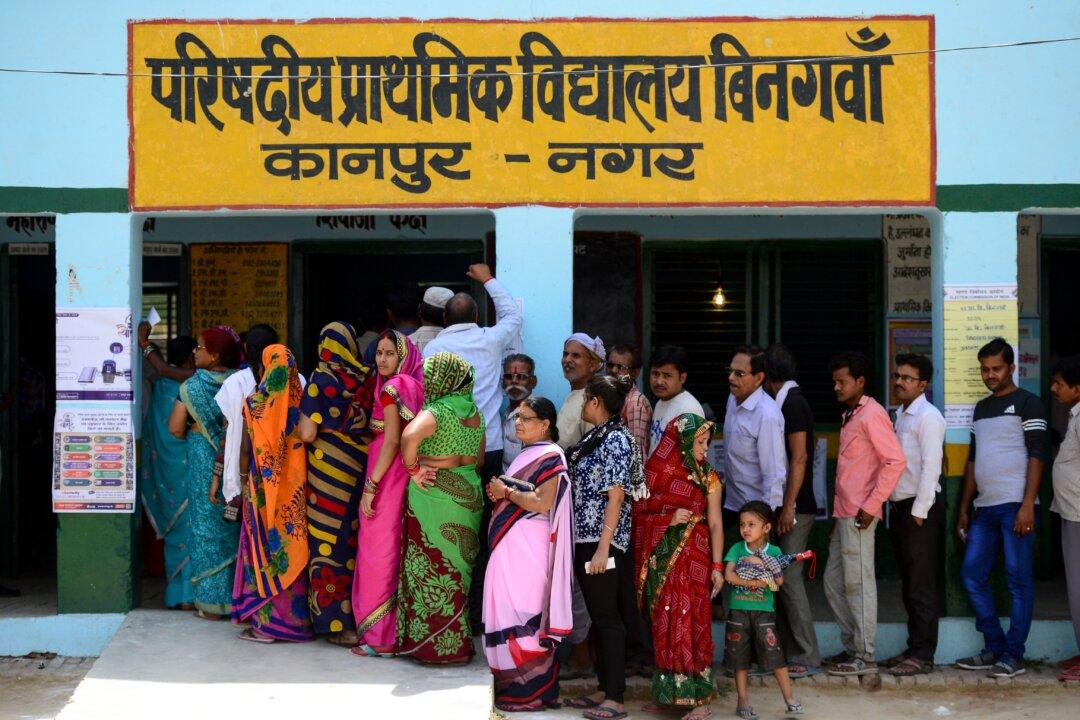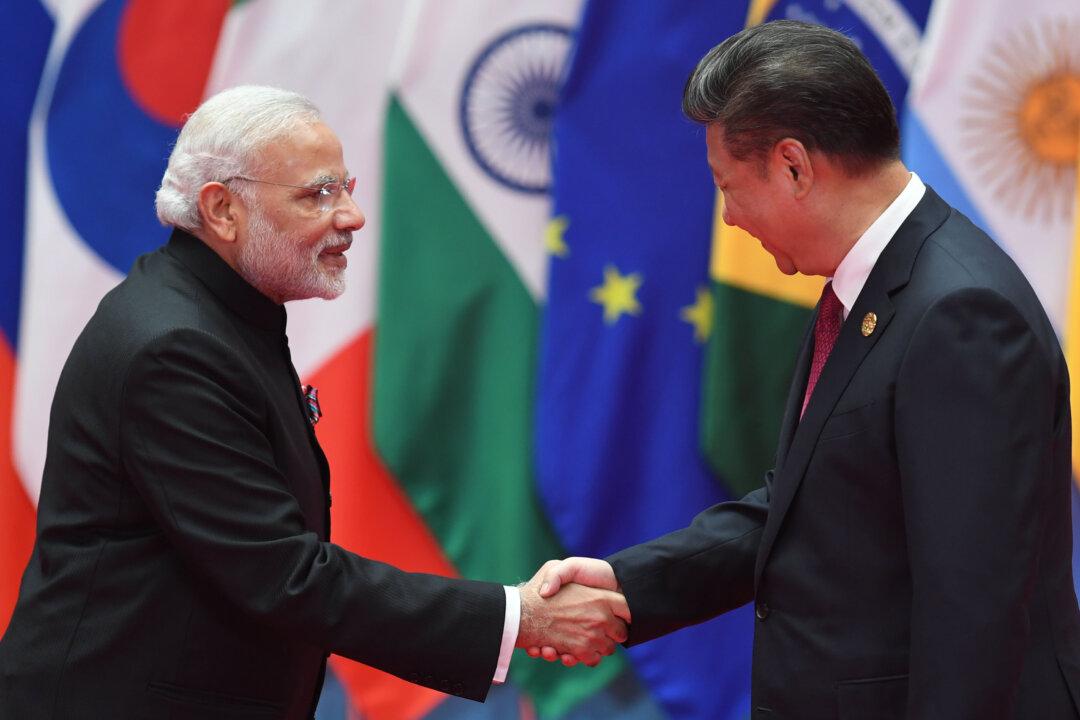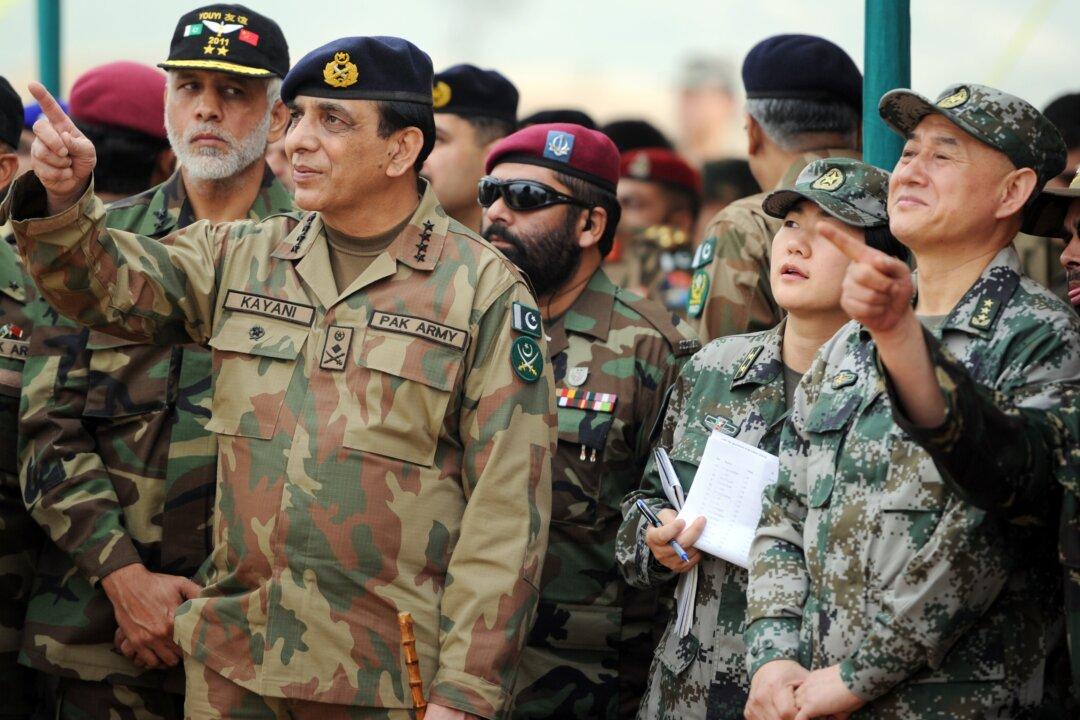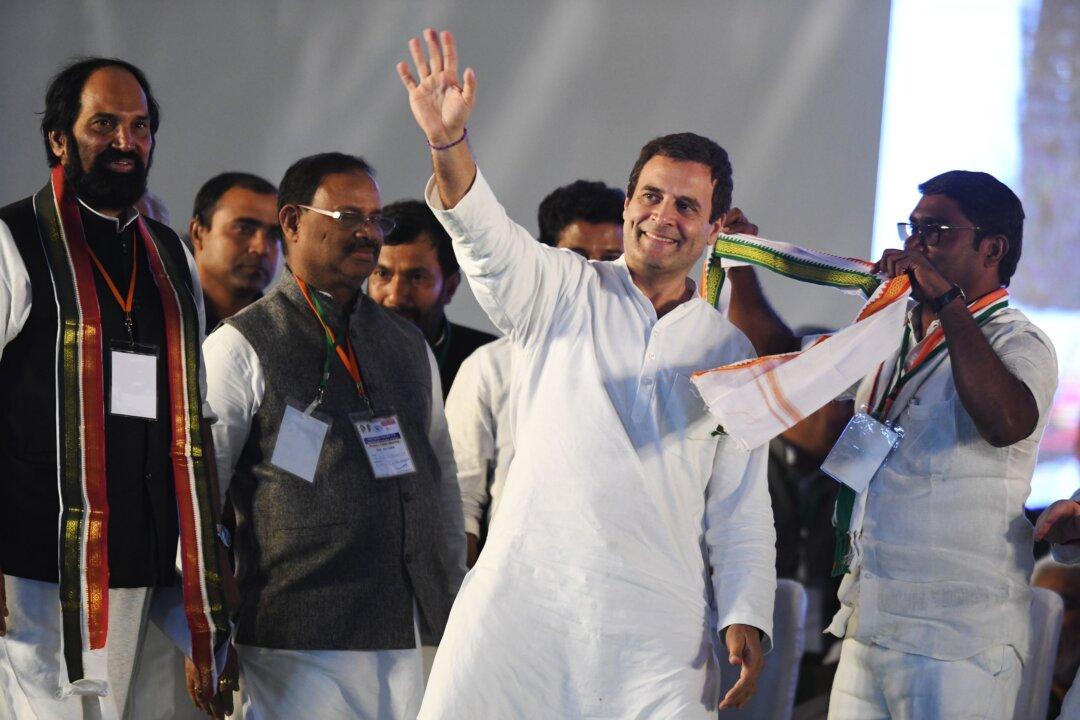MATHURA/DELHI, India—As India moves toward the culmination of its six-week election process, the big question is whether Prime Minister Narendra Modi will win a second term, or will the scion of the Gandhi dynasty be the next to govern the world’s largest democratic country.
Modi and his Bharatiya Janata Party (BJP) swept into power in 2014 with a huge majority win. His main contender this time around is Rahul Gandhi, the leader of the Congress Party and a member of the Nehru-Gandhi family that has occupied a prominent place in the politics of India since independence in 1947.



